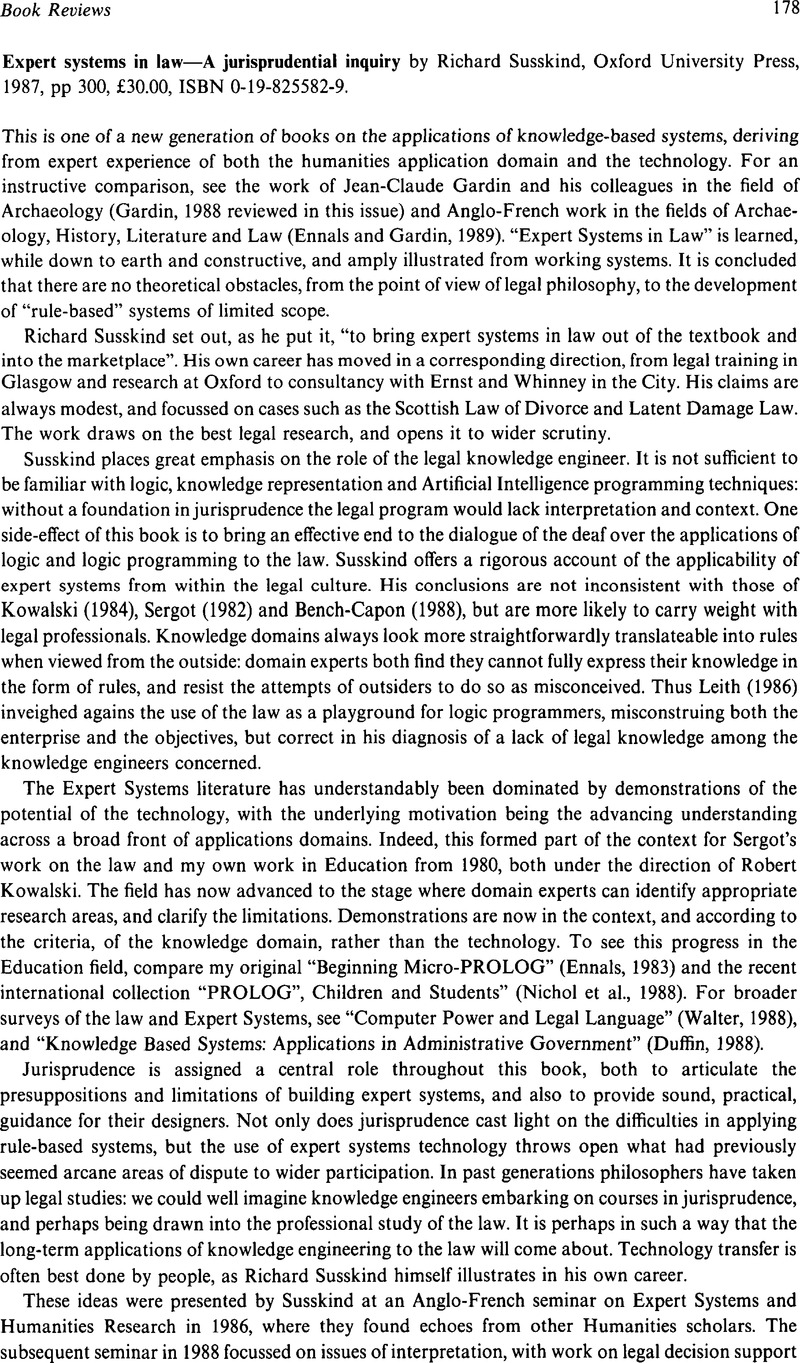No CrossRef data available.
Article contents
Expert systems in law—A jurisprudential inquiry by Richard Susskind, Oxford University Press, 1987, pp 300, £30.00, ISBN 0-19-825582-9.
Review products
Expert systems in law—A jurisprudential inquiry by Richard Susskind, Oxford University Press, 1987, pp 300, £30.00, ISBN 0-19-825582-9.
Published online by Cambridge University Press: 07 July 2009
Abstract
An abstract is not available for this content so a preview has been provided. Please use the Get access link above for information on how to access this content.

- Type
- Book Reviews
- Information
- Copyright
- Copyright © Cambridge University Press 1989
References
Bourcier, C, 1989. “From private conviction to the formulation of rules” In Ennals and Gardin, eds, 1989Google Scholar
Duffin, P, ed, 1988. Knowledge-based systems: Applications in administrative government, Ellis NorwoodGoogle Scholar
Ennals, R and Gardin, JC, eds, 1989. Interpretation in the humanities: Perspectives from artificial intelligence, London: British Library, in pressGoogle Scholar
Gardin, JC et al. , 1988. Artificial intelligence and expert systems: Case studies in the knowledge domain of archaeology, Ellis HorwoodGoogle Scholar
Kowalski, R, 1984. Logic for representing legislation, Imperial College: Department of ComputingGoogle Scholar
Nichol, J, Briggs, J and Dean, J, eds, 1988. PROLOG, children and students, Kogan PageGoogle Scholar
Sergot, M, 1982. “Prospects for representing the law as logic programs” In: Clark, K and Tarnlund, S-A, eds, Logic programming, London: Academic PressGoogle Scholar
Sergot, M, 1982. “Programming law: LEGOL as a logic programming language” In: Niblett, B, ed., Computer science and law, Cambridge: Cambridge University PressGoogle Scholar
Sergot, M et al. , 1986. “The British Nationality Act as a Logic Program” Communications of the ACM 29Google Scholar
Susskind, R, 1988. “Government applications of expert systems in law” In: Duffin, ed., 1988Google Scholar
Walter, C, ed., 1988. Computer power and legal language: The use of computational linguistics, artificial intelligence and expert systems in the law, QuorumGoogle Scholar


